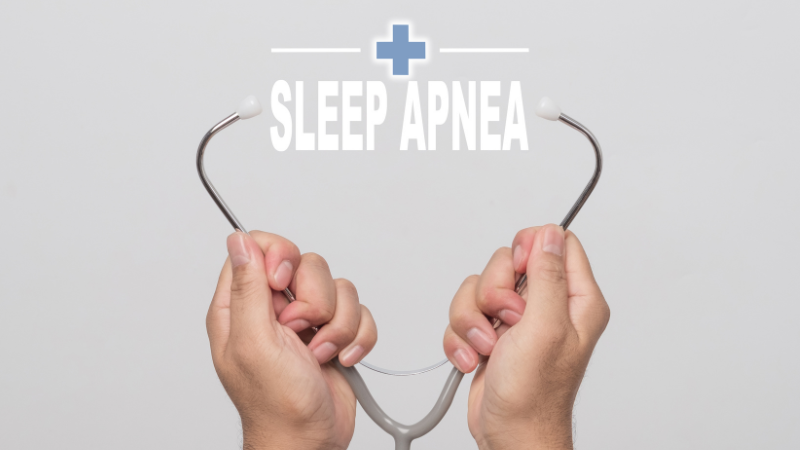3022 E 57th Ave #10 Spokane, WA 99223

Sleep apnea is a general yet often underestimated sleep disorder that affects millions of people worldwide. Characterized by pauses in breathing during sleep, sleep apnea can have profound consequences on both physical and mental health. In this comprehensive blog, we will delve into the intricacies of sleep apnea, exploring its symptoms and the associated health risks.
What Is Sleep Apnea?
Sleep apnea is a disorder that disrupts normal breathing patterns during sleep, leading to intermittent pauses in breathing. These pauses, known as apneas, can last for a few seconds to several minutes and may occur multiple times throughout the night. The three primary types of sleep apnea are Obstructive Sleep Apnea (OSA), Central(CSA), and Complex Sleep Apnea syndrome, also known as treatment-emergent Central Sleep Apnea.
Types Of Sleep Apnea
Obstructive Sleep Apnea (OSA)
The most common form of sleep apnea, OSA, occurs when the muscles at the back of the throat relax excessively, causing a partial or complete blockage of the airway. This obstruction leads to snoring, gasping, or choking as the individual struggles to resume regular breathing.
Central Sleep Apnea (CSA)
Central Sleep Apnea is less common and involves a failure of the brain to send appropriate signals to the muscles responsible for breathing. Unlike OSA, CSA is not associated with physical obstructions in the airway. Individuals with CSA may experience shortness of breath and awaken feeling unrested.
Symptoms Of Sleep Apnea
Sleep apnea symptoms can vary in severity and may be more noticeable to a bed partner than to the affected individual. Common signs and symptoms include:
- Loud and persistent snoring
- Pauses in breathing followed by choking or suffocating sounds
- Restless sleep and frequent awakenings
- Excessive daytime sleepiness
- Difficulty concentrating and irritability
- Morning headaches
- Difficulty staying asleep (insomnia)
Health Risks Associated With Sleep Apnea
Left untreated, sleep apnea can contribute to a range of serious health issues, both immediate and long-term. Understanding these risks is crucial for seeking timely intervention and management.
Cardiovascular Complications
Sleep apnea has been linked to an increased risk of cardiovascular problems, including hypertension, heart attack, and stroke. The recurrent drops in blood oxygen levels and the strain on the cardiovascular system during apneas contribute to these risks.
Diabetes
There is a notable association between sleep apnea and an increased risk of developing type 2 diabetes. Sleep apnea may contribute to insulin resistance and glucose intolerance, exacerbating diabetes-related complications.
Mental Health Implications
The sleep disruptions caused by apneas can take a toll on mental health, leading to mood swings, irritability, and an increased risk of depression and anxiety disorders.
Daytime Fatigue and Impaired Functioning
Excessive daytime sleepiness, a hallmark of sleep apnea, can impair cognitive function, concentration, and overall quality of life. This poses risks not only for the affected individual but also for those around them, especially if the person operates machinery or drives.
Seeking Diagnosis and Treatment
If sleep apnea is suspected, it is crucial to consult with a healthcare professional who may recommend a sleep study. Treatment options range from lifestyle modifications and positional therapy to continuous positive airway pressure (CPAP) devices and, in severe cases, surgical interventions.
Get Better Sleep With Personalized Treatment For Sleep Apnea
Sleep apnea is a significant health concern with far-reaching consequences. Recognizing the symptoms and understanding the associated health risks is the first step toward seeking appropriate diagnosis and treatment. By addressing sleep apnea proactively, individuals can not only improve their sleep quality but also mitigate the potential long-term health implications associated with this common sleep disorder.
Welcome to Our Practice
Schedule Your
Visit Now!
Map
